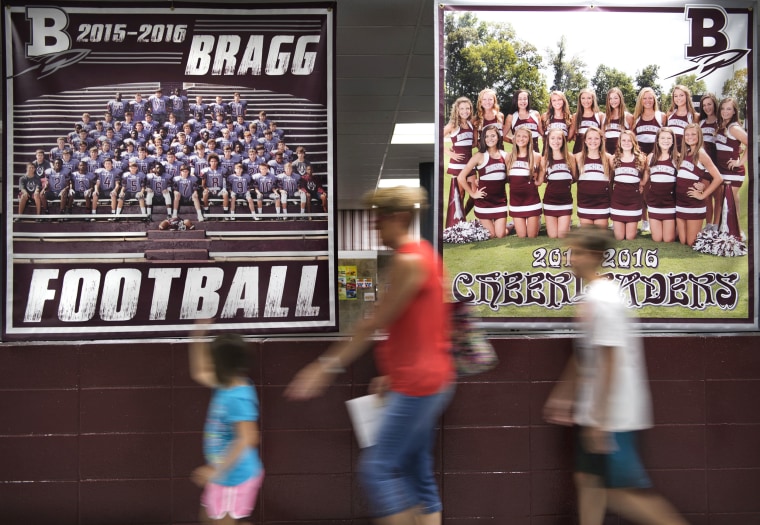The NAACP Legal Defense Fund has a message for a mostly white Alabama town that got the green light from a federal judge to split from a racially-mixed county school district and start its own system — not so fast.
The civil rights organization has made good on its vow to appeal Judge Madeline Haikala's ruling in April that allowed the town of Gardendale to secede from the Jefferson County school district, even though "race was the motivating factor" for many supporters of the split.
"The District Court agreed that Gardendale’s bid to form its own school district was designed to exclude black school children," said LDF's senior counsel Chris Kemmitt. "In filing this appeal, we are simply asking the Circuit Court to follow that finding to its logical conclusion and prohibit Gardendale from creating a separate, segregated school district at the expense of the broader community."
The Gardendale Board of Education responded on Friday with a brief to the 11th Circuit Court of Appeals.
"Our attorneys make it crystal clear that there is no violation of any laws or regulations which would prevent the operation of a Gardendale City School System for all grades K-12, and that characterizing Gardendale as anything other than an open and inclusive community is flatly wrong," Amee Donald, the board's executive assistant, said in a statement accompanying the brief.
In their filing, the board argued that Haikala concluded that race was at the root of the city's proposed move based on "the statements of third parties on a public Facebook page over which it had no control."
"They were instead the statements of private persons, none of whom were on the Gardendale Board and who collectively comprised a small fraction of the city's population," the court papers state.
The Gardendale board also noted that were it to form its own system the schools would not be all white. A quarter of the students who currently attend the four schools in town are black.
Even before all the legal back-and-forth, Gardendale’s plans to launch a new school system this fall were in limbo.
That’s because Haikala stayed most of the provisions of her ruling in May after both sides indicated they would challenge it.
A suburb of Birmingham with a population of 14,000, Gardendale is 88 percent white. It is located in a county with a population of 658,000 that is roughly 53 percent white, 42 percent black — and has a long history of school segregation and racial strife.
Gardendale has for many years sought to create its own school system and city leaders spelled out their reasons on the Board of Education's web site.
"We believe that having local control over the city’s schools will give the community a sense of pride and ownership," it says. "Research has demonstrated that schools benefit from being in a community that is directly invested in their success. From an economic standpoint, forming a city school system in Gardendale should allow us to flourish."
But in her decision, Haikala contended that “race was a motivating factor in Gardendale’s decision to separate from the Jefferson County public school system.”
"The record demonstrates that some Gardendale citizens are concerned because the racial demographics in Gardendale are shifting, and they worry that Gardendale, like its neighbor Center Point, may become a predominantly black city," she wrote. "These citizens prefer a predominantly white city."
In the end, however, Haikala allowed the split to be fair to the parents in Gardendale "who support a municipal separation for reasons that have nothing to do with race."
But Haikala also reserved the right to reverse her decision if Gardendale reverted back to its segregated past.
CORRECTION (Aug. 10, 10:10 a.m.): An earlier version of this article misstated the name of the organization challenging the judge’s decision. It is the NAACP Legal Defense Fund, not the NAACP. The two organizations are separate.

